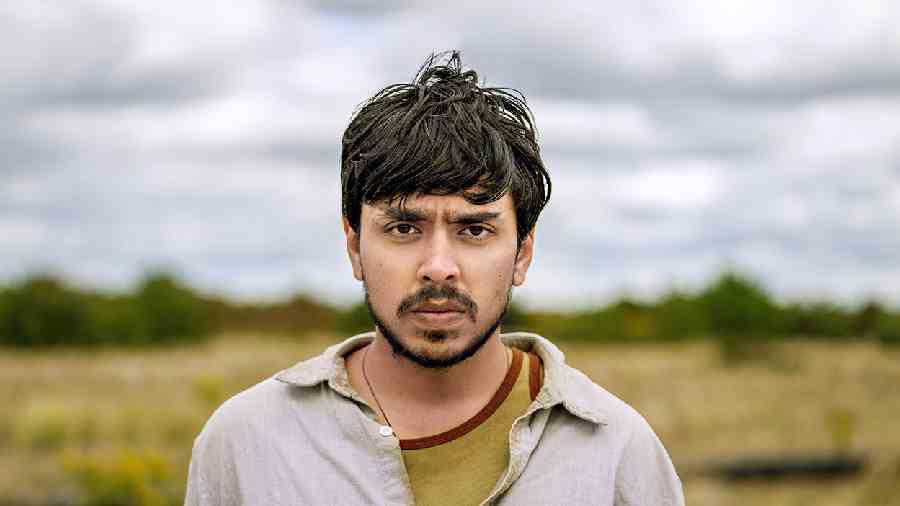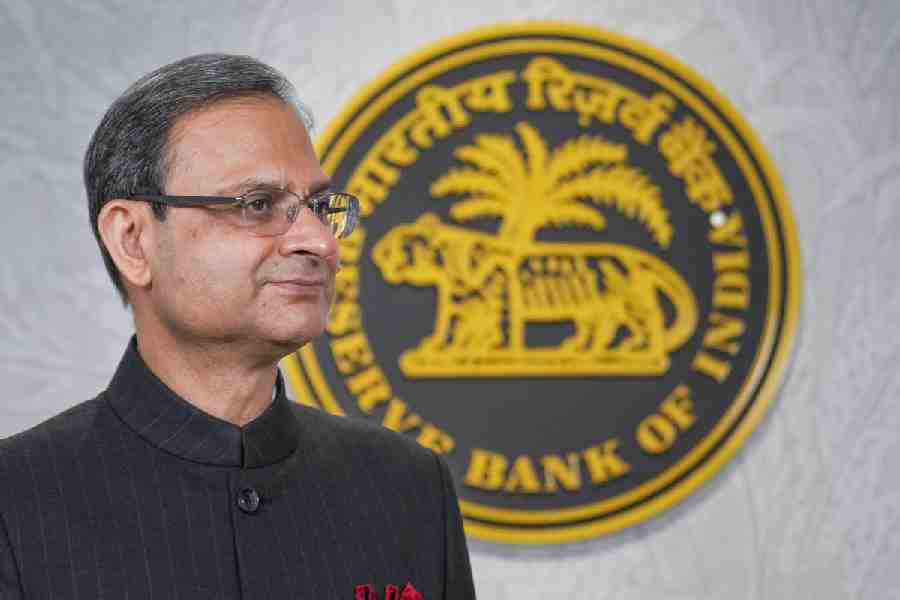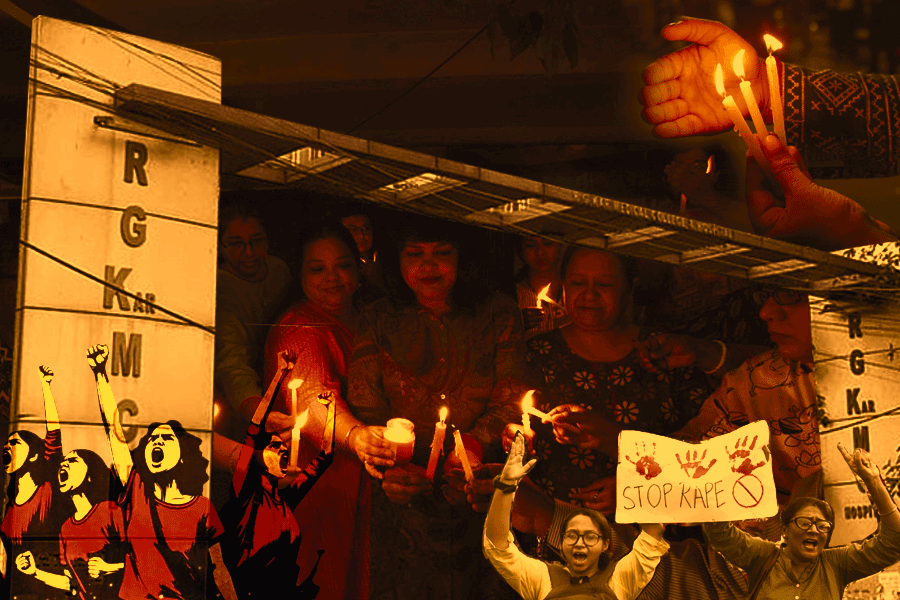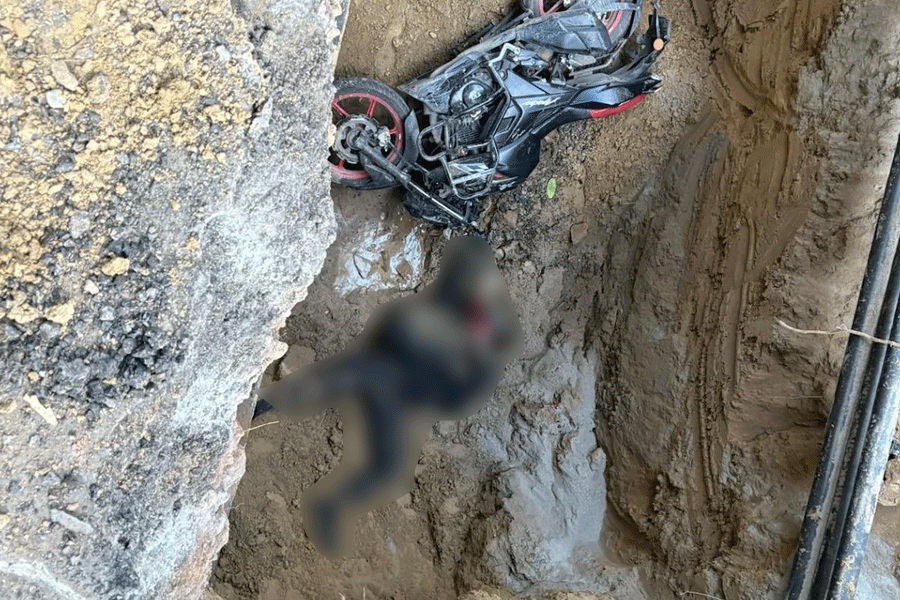The year is 2046 and a scientist is communicating with what appears to be one of the last humpback whales on Earth. It’s an episode from an ambitious show around climate change from different perspectives. Titled Extrapolations, it holds a mirror to what the future may look like — fires rage on, floods happen as often as famines and the meaning of power-grappling has changed. Coming from writer, director and executive producer Scott Z. Burns (best known for writing the research-heavy Contagion, Side Effects and The Informant!) means the on-screen chaos looks realistic.
In the March 31 episode (2059 Part II: Nightbirds), we will see Adarsh Gourav, whom you know from The White Tiger, play a small-time criminal, also named Gaurav in Mumbai. He has an unexpected meeting with Neel (Gaz Choudhry) and they go off on a high-stakes mission. This is at a time when people go out after sunset and shops selling oxygen are everywhere.
Here’s what Gourav told us about the show and his take on the climate crisis.
Reading about someone carrying an oxygen tank in the future is one thing but when an actor carries it on screen, it can have a great impact on viewers.
I think what the show is trying to tell, and what it’s trying to show, is that people will sort of start having their personal oxygen tanks. All of us have already moved towards air purifiers in the last three or four years, especially in the metro cities you see a lot more of them. And, I have heard, that there are these oxygen… sort of retail shops in Delhi. I don’t know if they’re in Mumbai or not, where I’m from. I know there are a couple of such stores in Delhi where you can get 100 per cent oxygen for an hour. So it’s not too far away I guess. We might have to start relying on things like that.
What was the initial brief given to you by the director?
I was approached for the show in June 2021; Scott (Z. Burns) and his team were in touch with me. They told me that it was going to be a dystopian show about climate change. At that point, I wasn’t aware of the other cast members who were going to be a part of it. When they told me that it’s going to be a show based in the future and Richie Mehta is going to direct it and you will probably have to travel to the US for it, I was very excited because I haven’t done a show in the sci-fi space, and also when you have somebody like Scott Burns backing it, who’s already made something like Contagion, it’s honestly a big opportunity for an actor like me. I was keen and excited to be a part of it and I’m delighted that I can share my name in the credit line with Meryl Streep, Tobey Maguire and Forest Whitaker. Some of the names have inspired me to be an actor; it’s a surreal feeling.
How would you describe your character?
I think my character is an accurate representation of what the common man would be 40 years from now, somebody who’s still sort of misguided, still comes from borderline poverty, and is facing the effects of climate change at ground level. I also feel the reason that makes our episode special is... the other episodes talk about people who are making those decisions while this episode particularly talks about people who go through it at a personal level in a country which is susceptible to climate change. My character’s name is incidentally Gaurav and he comes from a family of farmers. He has seen a lot of personal tragedies. Because of what he has seen in life, he’s very tough. He’s almost like a coconut in that sense — a man with a tough exterior but he’s a softy on the inside. The episode is centred around Gaurav and Neel (who is given the responsibility of ensuring Gaurav delivers the “goods”), the interactions they have and their beliefs in life.
Many thought that the climate crisis will be greater in a century or two but, looking at the situation, it’s unfolding before us. Is that one of the reasons you agreed to be part of the show?
Yes, I think it’s a very important conversation to be had. So far all the shows and films that have been based on climate change are around whatever’s happened before. These are all fantastic shows and I enjoyed watching them. But they’re also slightly based more on the fantasy side. Extrapolations is something that we haven’t seen in a long time. And it can’t get better than having Scott Burns running the show. I feel it was about time for such a show to unfold. It’s time for people to start taking this more seriously and more personally, like not just limiting it to conversations but actually doing what you can at a micro level. At times it’s tough because when these policies are made, they’re often made by developed countries. For example, like doing away with coal. I feel creating a policy… when you say that coal shouldn’t be used versus the ground reality of a person who’s using coal, say, in a small village in Orissa. What alternatives does he have but to use coal? You got to start thinking about those things. People should start doing what they can in the smallest way possible, for example, not using plastic bags and favouring cloth bags.
Is India doing enough to be part of the global conversation around climate crisis?
What I do know is that people have become more conscientious, people have become more aware… there are now more people who are striving towards being more eco-friendly, and being more aware of their carbon footprint. It’s a slow process. India is such a big and diverse country with so many people, and you won’t see the effect immediately. I feel like we are heading in the right direction and many are talking about climate crisis and corporate houses are getting into it. I feel a change is coming. It could be slow but what’s important is that it needs to be consistent.
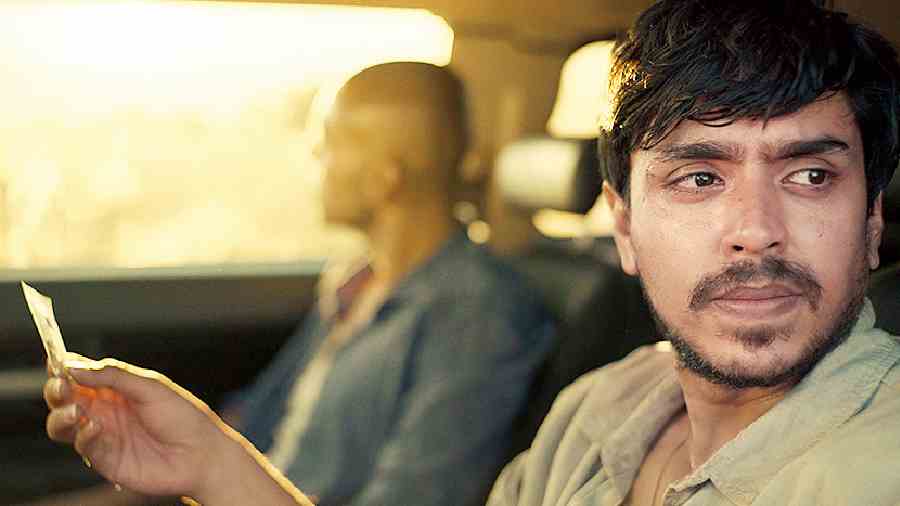
Adarsh Gourav is kept company by Gaz Choudhry, who plays Neel
The episodes deal with a bleak future but there’s also an element of entertainment. How important is that to a show’s success?
Whatever you make cannot be preachy; it has to be engaging because at the end of the day you’re making a show. Even if it’s a documentary, like All That Breathes and The Elephant Whisperers… both talk about something much bigger but they’re also engaging and not boring. Similarly, when I had the opportunity to become part of the show and when I read my episode, it engaged me; it was an hour-long read that was exhilarating, that spoke about bigger things.
While filming the episode, were there sustainability efforts on the set?
We filmed in New York for some 15-20 days and there were no plastic bottles used on set. It sounds like a very small thing but it actually makes a lot of difference as to how much plastic waste we create on an everyday basis without even realising. We had our personal metal bottles. Plus, it was Covid time. So there were fewer people and less contact. Everybody was trying to do the best they could under those circumstances to have as less contact as possible. I also had to travel to New York in the middle of the pandemic. It was an adventure in itself.
What’s the one big thing you learned about climate crisis while working on the show?
I didn’t know about Global Seed Vault (in Norway) where all the important seeds of the world are stored. I thought it was fictitious when I was reading about it but then I realised it’s a real thing. In case of a major disaster, all the grains and important seeds of the world are kept there.
When you were growing up, what’s the first lesson you were taught to be responsible to the environment?
I think it was about saving water. My parents very early on taught me to not take unnecessarily long baths. They said that a seven-to-10-minute bath is enough to apply soap and to clean that off. That’s how much water I need to use. We didn’t even have showers because I think my colony had some kind of water shortage.
The lesson has stayed on with you?
It has. I get clueless about what to do after like seven minutes in the bathroom.

